What is a Traumatic Brain Injury (TBI)?
A traumatic brain injury, or TBI, is when physical trauma interrupts the normal function of the brain, such as bruising, bleeding, tearing, or twisting of brain tissue. Symptoms can include:
- Severe or consistent headaches
- Dizziness
- Memory loss
- Vision problems
- Trouble with coordination
- Insomnia
- Nausea
- Depression
- Changes in personality or mood
TBI’s come in two forms: acquired and in-born. Acquired brain injuries occur any time after birth and are often caused by a sudden or forceful impact to the head. In-born brain injuries are those that develop before birth. Sometimes, in-born brain injuries are naturally occurring, but they’re often caused by negligence by a medical professional.
The law provides substantial protection to those who suffered a TBI due to the negligence or recklessness of another, whether it was acquired or inborn. Our team has years of experience representing victims of both and we’ll help you understand all your rights and options.
Read More
Important Timelines To Consider If an Accident Has Led to a Brain Injury
- You generally have two years from the date of your accident to file a lawsuit against the at-fault parties for your injuries
- You have seven days from the date of the accident to inform your insurance company of what has occurred and that you were hurt
- You have ten days to provide additional information to your insurance company if and when they request it to determine how much you may be entitled to. If you fail to provide additional information following their request, your claim may be suspended or dismissed
- You have thirty days to complete the accident benefits application sent by your insurance company
For more information on crucial timelines regarding your TBI claim or case, be sure to call us. Our lawyers will be happy to answer any questions you may have.
Three Basic Levels of TBI Severity
Mild
With mild TBIs, the victim may only experience a few seconds or minutes of unconsciousness, if any, following the accident. Confusion or disorientation may also be present in the absence of unconsciousness.
Medical imaging tests may also show that the brain was uninjured— though, we highly recommend that you continue to monitor the victim for any changes in mental functioning.
Moderate
Moderate brain injuries are determined by the following factors: the loss of consciousness that may last a few hours, and the consistent state of confusion that follows lasting up to a few weeks. A concussion is classified as a mild TBI.
The complications of moderate TBI include physical, cognitive, or behavioural consequences. These difficulties may last for months following the accident and could be permanent.
Severe
The most severe TBIs are both life-threatening and life-changing. Severe TBIs are often diagnosed following an open head trauma where the skull has been dealt with a crushing blow. Closed head injuries can also result in severe brain injuries.
It is important to note that even the mildest of head injuries can have serious and long-lasting effects. Whether or not you’ve suffered a mild or severe brain injury, you deserve the help and compensation that you’re entitled to. Our lawyers have helped thousands of victims fight for fair payments, and we are prepared to work diligently for yours.
Close




















